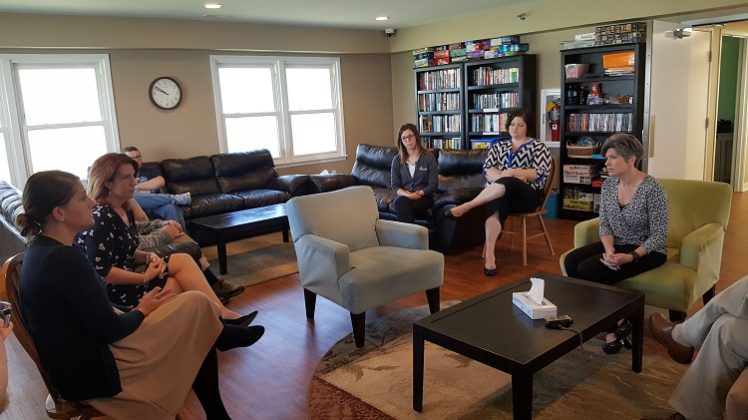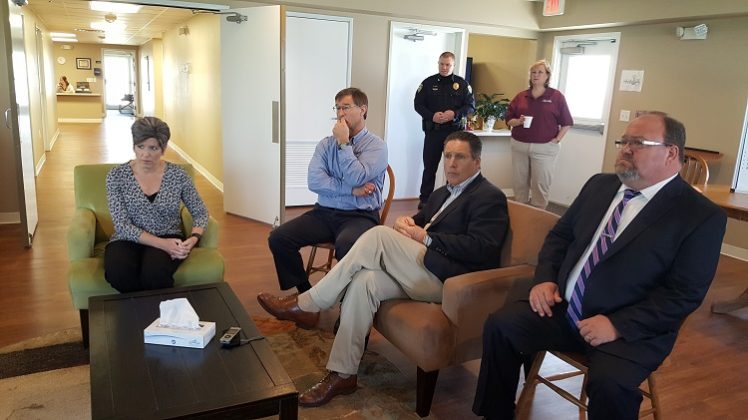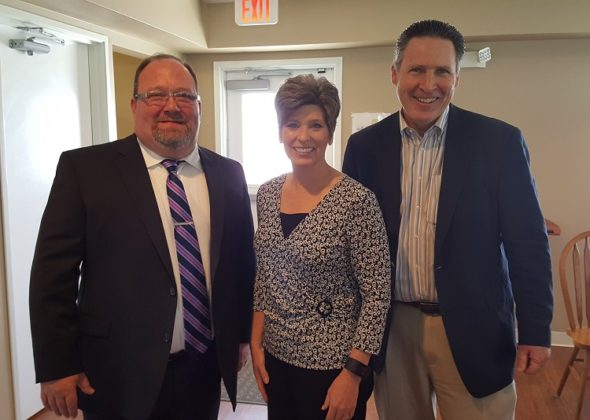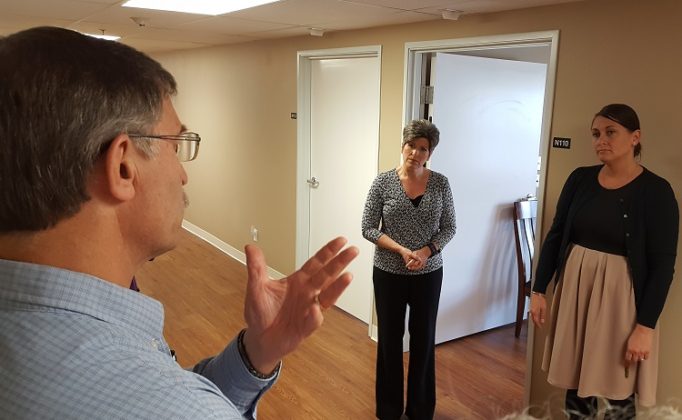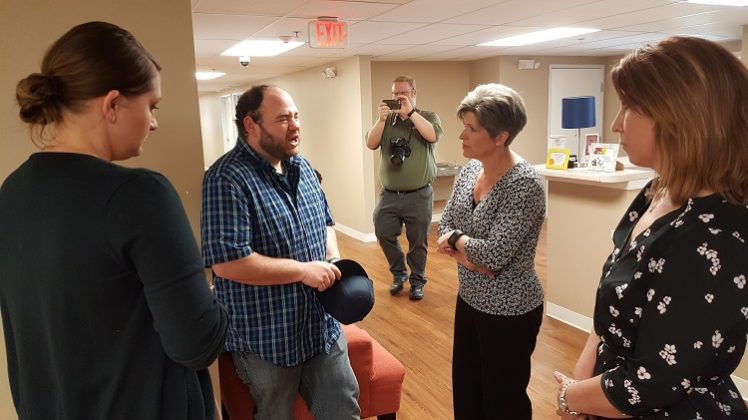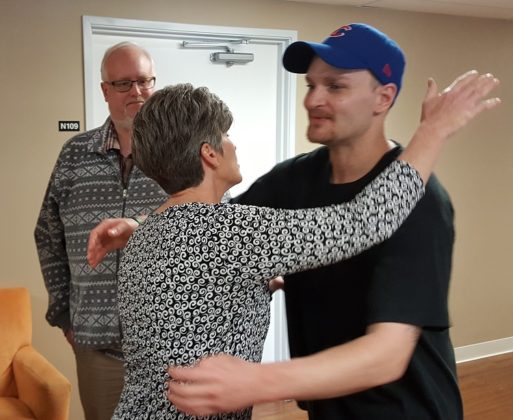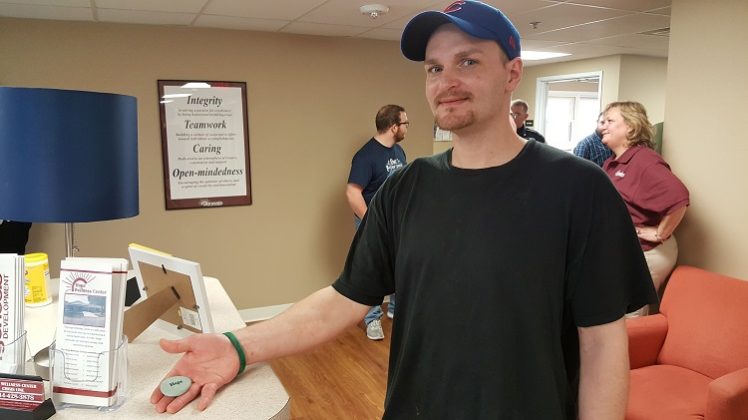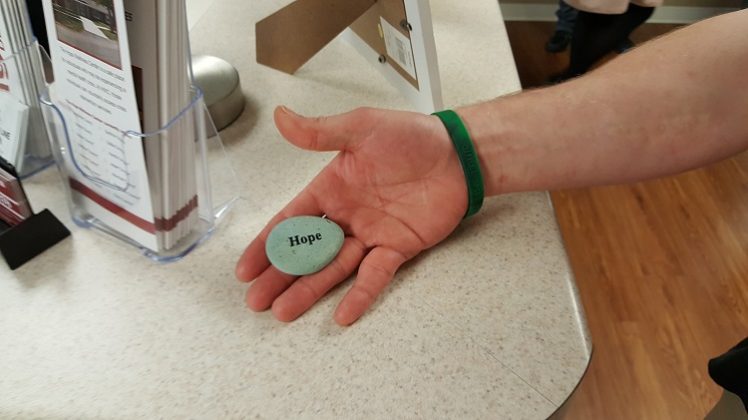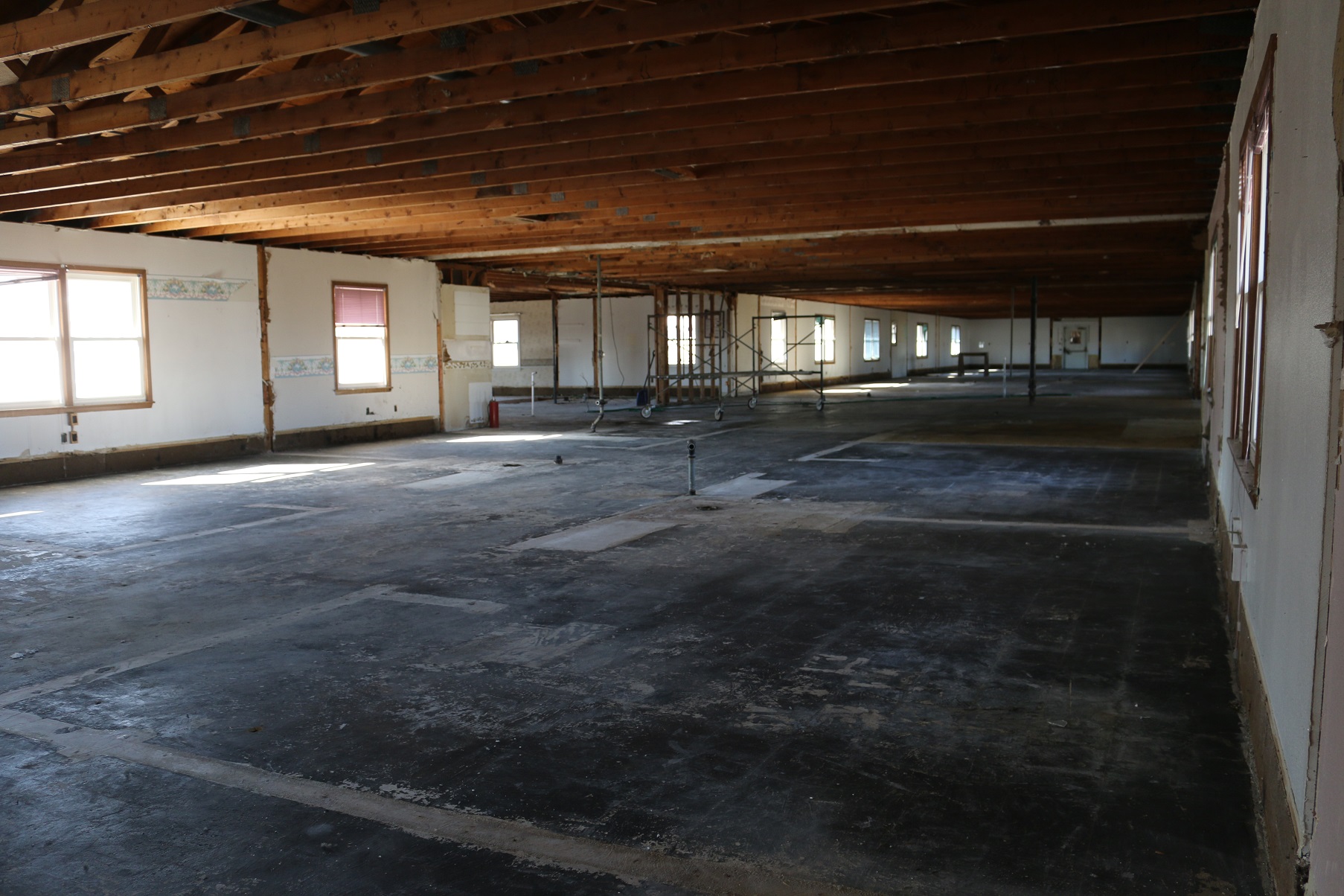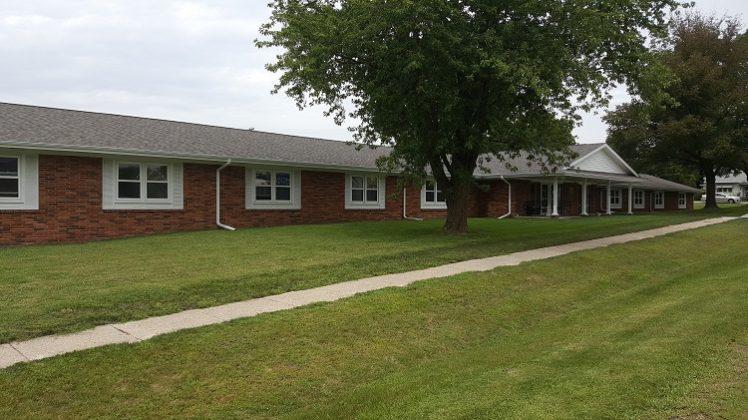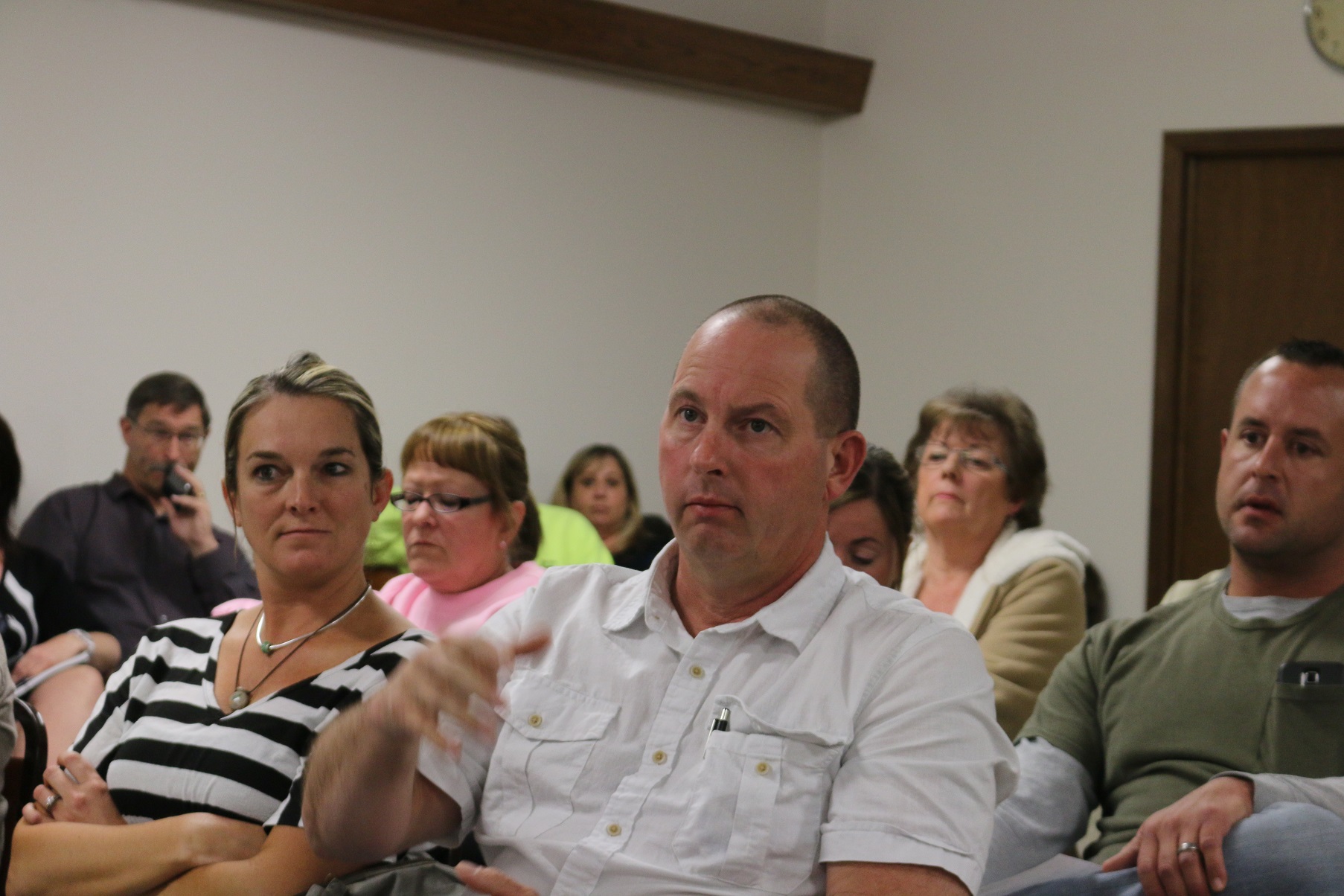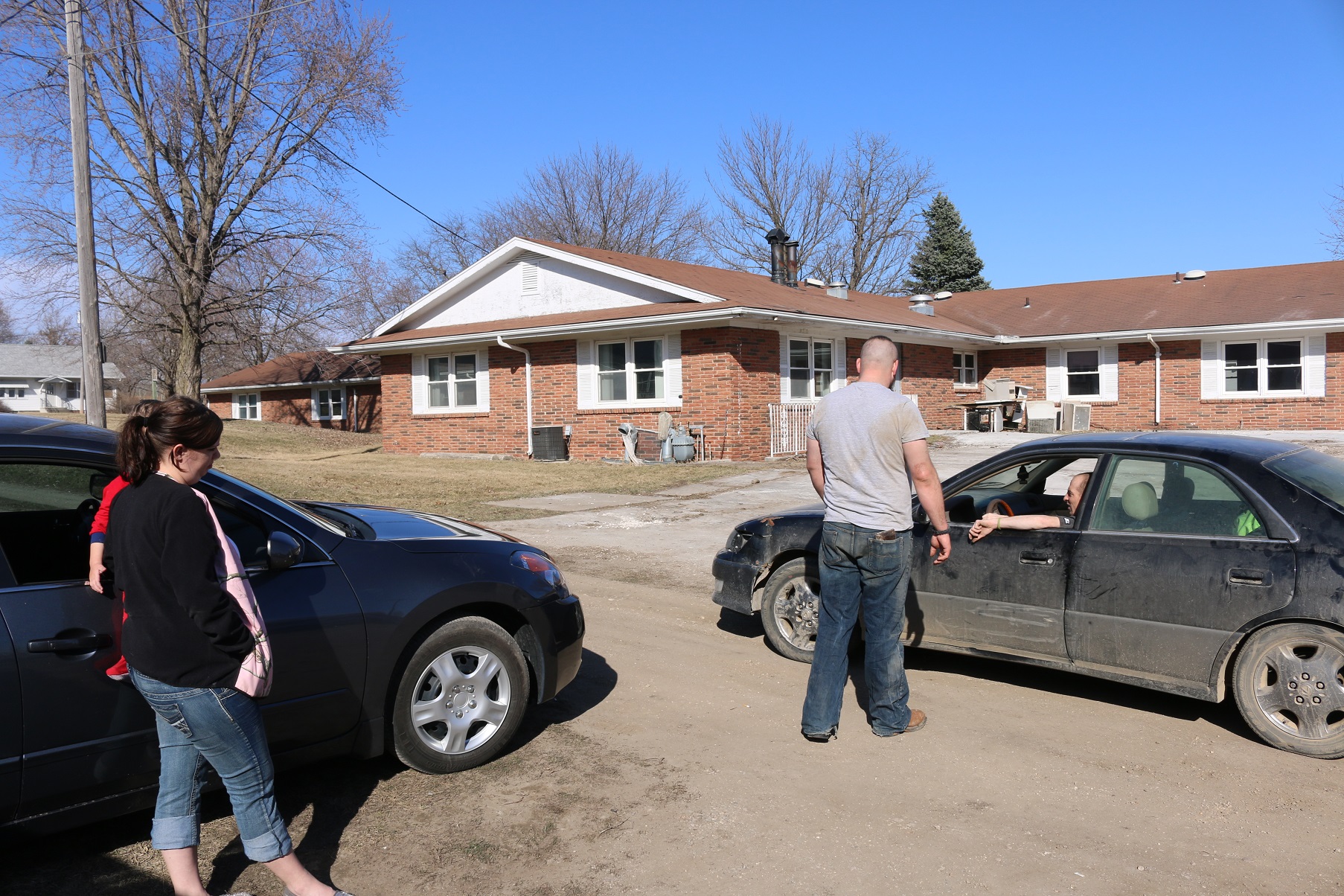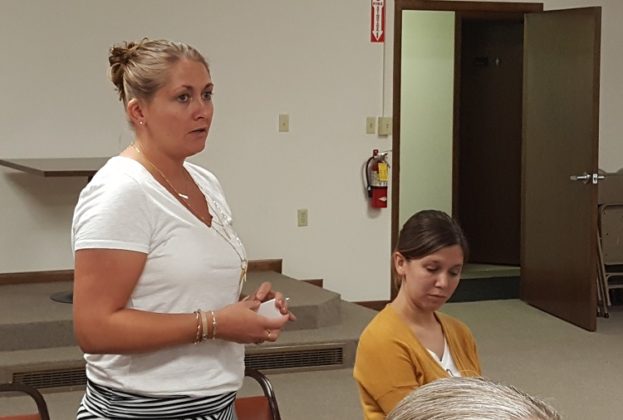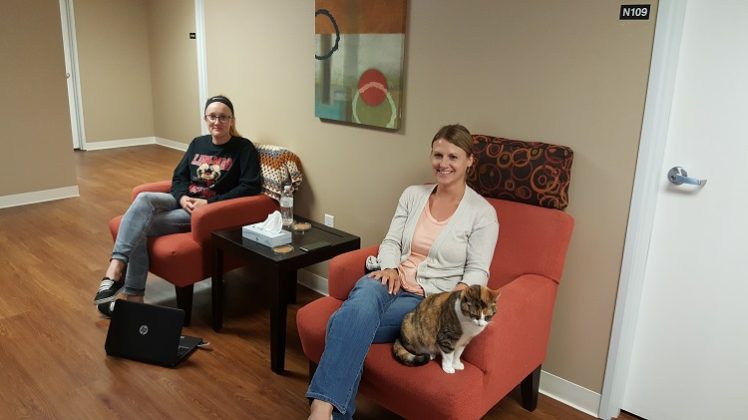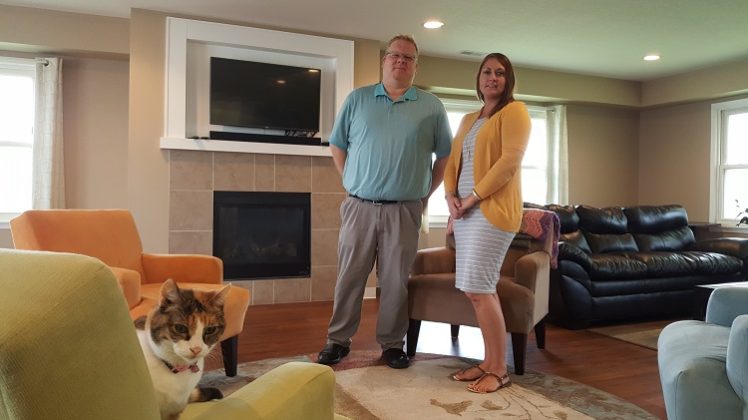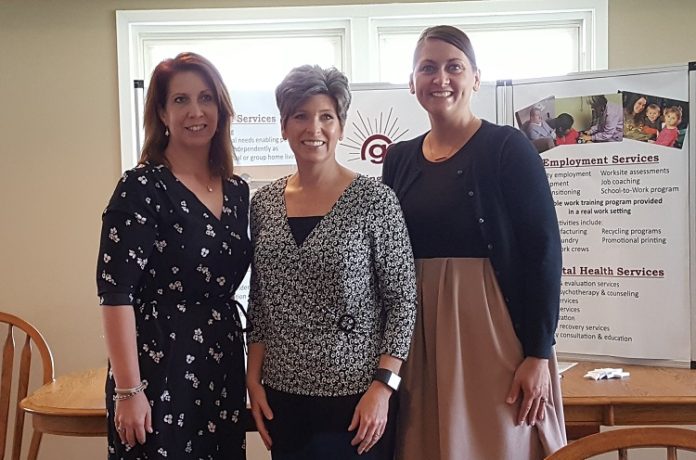
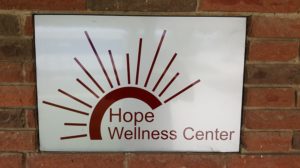 U.S. Sen. Joni Ernst made a stop in Dallas County Friday morning on her 99-county tour of Iowa, paying a visit to the Hope Wellness Center in Woodward and learning about the innovative programs at the community-based mental health facility.
U.S. Sen. Joni Ernst made a stop in Dallas County Friday morning on her 99-county tour of Iowa, paying a visit to the Hope Wellness Center in Woodward and learning about the innovative programs at the community-based mental health facility.
The Hope Wellness Center opened in August 2015 and is operated by Genesis Development and largely financed by the Heart of Iowa Community Services region, of which Dallas County is the largest member. The center has two wings, one providing short-term crisis intervention, usually lasting seven to 10 days, and the other offering transitional support for three to six months.
“There aren’t a lot of programs like this that we can model off of,” Genesis Development Chief Executive Officer Terri Johnson told Ernst. “I think we were the third one in the state perhaps, and neither one of those were like this.
“I’m excited to see facilities like this,” said Ernst, who was elected Iowa’s first female senator in 2014, following the retirement of U.S. Sen. Tom Harkin. “I believe we do need more supports like this not just across Iowa but across the United States. There are a lot of issues that we struggle with both on the mental health front as well as substance abuse, and if we can keep recidivism down and help families and individuals, this is what we need to be supporting.”
Supporting such programs is a touchy subject with Johnson, who said privatization of Iowa’s Medicaid administration has so far meant a yearlong struggle for reimbursement from the managed care organizations. Johnson said the Heart of Iowa region’s support has kept Hope Wellness’ doors open.
“If it weren’t for the regions, we would not exist,” he said. “There is not funding available. They’re picking up so much of the cost that should not be picked up by them, but that’s the way the system is. It continues to be an issue with the fact that we’re trying to work with our managed care organizations.”
Some state lawmakers put the case more pointedly than Johnson and claim Medicaid privatization has failed in Iowa, pointing to the $450 million lost by the MCOs in their first year under the reformed system and the additional $127 million promised by the state to the insurance companies.
“As the program has progressed, it’s become more and more clear that the privatized Medicaid program is not working,” according to U.S. Rep. Dave Loebsack. “This plan was implemented too quickly and is grossly underfunded.”
In spite of these financial hurdles and some initial fear and skepticism from its Woodward neighbors, the Hope Wellness Center has built a successful track record in its nearly two years of operation.
“I would say for folks that come out of the jail program and into this program, our success rate is probably around 90 percent of recidivism,” said Darci Alt, CEO of the Heart of Iowa Community Services region. “We don’t see those folks going back in.”
Karen Rosengreen, director of services at Hope Wellness, said demand for the center’s transitional services is high, with a six- to 10-week waiting list for people needing services. Rosengreen introduced the senator to Shane Laird of Perry, currently a resident in the transitional program who is making progress.
“The successful rates we’ve seen have been just phenomenal,” Rosengreen said. “We’ve developed phase one and phase two. So those that come in on phase one, such as Shane, who you talked to, he came in on phase one, and we decided we really need to understand your substance-abuse issues. We need to understand what your diagnosis is and make sure that he understands those and the medications that he’s taking daily — what is he taking those for and why? Once he gets a good grasp on that, then let’s move on to the next step. Then let’s look for a job. Then let’s look for housing. And that can take up to six months.”
While Hope Wellness’ success stories are encouraging, the statewide outlook for mental services is dismal. A June 2016 report by the nonpartisan Treatment Advocacy Center found the state of Iowa has just 64 state beds for mental health patients, which translates into two beds for every 100,000 Iowans, giving Iowa the worst oratio in the U.S. for per-capita state beds.
The report also found 60 percent of Iowa’s available mental health beds are used by inmates in the correctional system, leaving just 26 state beds available for 3.1 million Iowans.
The gradual shift from state-provided mental health services to privatized services has been the deliberate policy of Gov. Terry Branstad. Since 2013 the governor has unilaterally closed state mental hospitals in Mt. Pleasant and Clarinda, along with the Toledo Juvenile Home for girls and the 15-bed children’s psychiatric unit at the state’s mental health institute in Independence.
“The reality of mental health treatment – and the biggest challenge our prisons, law enforcement and health care providers face today – is keeping patients safe in state or private mental health beds while implementing proper medication regimes, initiating proper therapy, providing community support and developing a plan for ongoing therapy,” according to Rep. Mark Smith (D-Marshalltown), a 25-year veteran in the mental health field in Iowa.
Smith said there are now a total 731 mental-health beds — both public and private — available in Iowa, while statistics show about 123,000 Iowans suffer from a serious mental illness.
“Most of the patients in those beds should be transferred, over time and with the proper transition, to community-based care,” Smith said. “To do so will require more psychiatrists trained and working in communities as well as additional supporting personnel, such as psychiatric advanced nurse practitioners, social workers, psychologists, physician assistants and counselors.”
Ernst pointed to Congress’ passage of the 21st Century Cures Act in 2016 as a step toward addressing some of the nation’s mental-health needs, but Iowans’ needs are now more acute with the decisions earlier this month by two of the state’s three Affordable Care Act marketplace exchange insurers, Wellmark Blue Cross and Blue Shield and Aetna, to pull out of the exchange and announce they would no longer sell individual health-insurance policies in Iowa.
Ernst said she had no comment on renewed efforts in Congress to revive the stalled repeal of the Affordable Care Act with a plan that further strips benefits from policyholders, such as coverage for pre-existing conditions.
“Until I see a plan, I really can’t comment on it,” she said. “I do know something has to be done. Right now in Iowa, Blue Cross Blue Shield is pulling out of the exchange. Humana is pulling out of the exchange, and they both have said they won’t be offering individual policies even outside of the exchange. That leaves Medica, one provider in the exchange. We have to do something about it. Whether you like it or not, we have to do something about it.”
Ernst said Republicans in Congress and in state legislatures are not seeking deliberately to wreck Obamacare by bankrupting the marketplace exchanges.
“It was failing already before,” she said. “We saw this in a number of states, even in previous years, where insurers were pulling out of exchanges. So this is not a new phenomena. It’s hitting Iowa right now, so what we have to do though is make sure we don’t let people fall through the cracks. We have to do something about it.
The Hope Wellness Center at 706 Cedar St. in Woodward is the former 19-room Parkview Manor nursing home, which was built in 1965 and closed in 1996 and remained vacant until reopened as the Hope Wellness Center. County records indicate James and Kathy Harney of Madrid sold the property in January 2015 to Premier Woodward LLC, a corporation owned by developer Jamie M. Myers of Urbandale.
Premier Woodward then entered into a long-term lease agreement with Genesis Development, with the Heart of Iowa region contracting with Genesis for the provision of services. The Heart of Iowa Community Services region comprises Greene, Dallas, Guthrie and Audubon counties.
“We feel that it’s about as centrally located for our region as possible,” said Dawn Rudolph of Scranton, a member of the Greene County Board of Supervisors who also sits on the Heart of Iowa board of directors. “The need for the outpatient services extremely high. We hope that this will save counties in our region a lot of money on our inpatient care.”
There was some resistance to the proposed mental-health facility in the local Woodward community when the project first became known, but nearly two years of smooth operation and a high success rate have apparently calmed those fears.
Woodward Mayor Brian Devick told Ernst the facility has been a financial benefit to the city.
“Our benefit locally isn’t really with the mental health issue,” Devick said. “Our benefit is the fact that the facility is in use, because without these folks coming in using the facility, we had this facility sitting here for 10 years, not on the tax rolls, doesn’t help anybody in the population of the town. It brings down the whole real value of the community. So putting the investment into these facilities also has a financial benefit and impact to the community that they’re sitting in. From that standpoint, we as a city government are very glad that they’re here and doing this.”









